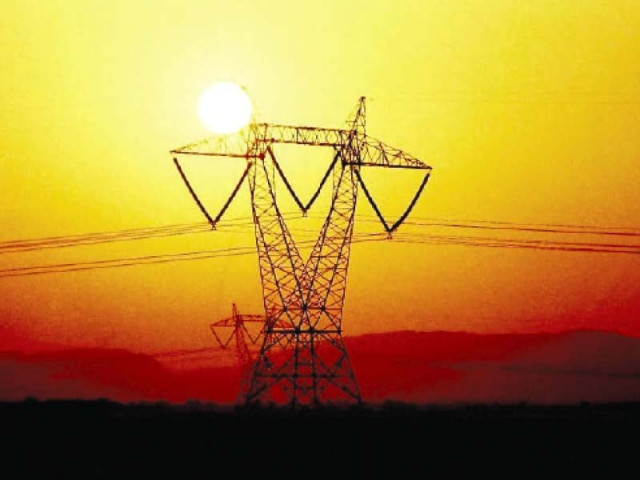Karachi braces for electric shock
Rs11.18 per unit hike is determined as part of quarterly adjustments

Already groaning under the skyrocketing prices of commodities and inflated utility bills, the K-Electric (KE) consumers are bracing themselves for yet another painful jolt – an increase in power rates by up to Rs11.18 per unit as part of quarterly adjustments.
The National Electric Power Regulatory Authority (Nepra) conducted a public hearing on the federal government’s request, titled ‘Motion for Recommendation of Consumer End Tariff for K-Electric and Application of Uniform Tariff for K-Electric Consumers by Way of Tariff Rationalization’.
During the hearing, the Power Division pressed for an increase in the electricity tariff by up to Rs10.32 per unit for KE consumers to establish a uniform tariff for KE consumers.
“However, it amounts to Rs11.18 per unit increase after including all applicable taxes on the proposed increase,” the Power Division officials maintained during the hearing.
The federal government had sought an accumulative increase in tariff for different quarters to be recovered from consumers of Karachi. It was said that as many as 40 per cent of total consumers were protected through low tariff rates whereas 63 per cent of total residential consumers fell in protected categories of the consumers
Also read KE dispute reaches international court
The Power Division officials noted that these protected consumers had been paying electricity bills ranging between Rs3,000 and Rs7,000 per month.
However, the Nepra officials raised doubt over the authenticity of the data.
They said there were seemingly serious issues in Discos that might be charging bills by imposing higher slabs
The Nepra said the figure of 60 per cent protected consumers submitted by the Power Division was apparently incorrect and raised questions over the tariff policy approved by the government.
They said the tariff policy ignored the issues of tax collection, and economic growth as the higher tariff affected these two segments.
They observed that the tariff had also affected industrialization, adding that it would have a negative impact on employment.
“If people are not employed, how they will pay bills,” the Nepra officials questioned. They asked the Power Division to address its concerns over tariff policy that was affecting people in the country.
Also read Dollar indexation worries NEPRA
Speaking on the occasion, the Nepra chairman said that the Power Division represented the federal government.
“We are concerned about the policy framework and tariff shocks how they are detrimental to the economy,” he said.
He further grilled the Power Division officials over holding Nepra responsible for increase in the tariff.
The Nepra chairman clarified that the regulator decided power tariff in response to motions submitted by the government, adding that the federal government hiked the rate.
“Convey over concerns to the federal government and explore options to offset increase in cost of tariff,” the Nepra chairman said.
The Nepra officials noted that the economy had slowed down and urged the government to take notice to assess the impact of high electricity rates on the economy and the common man.
The Power Division officials replied that there were certain factors that were not in control of the government.
They reasoned that global factors had impacted the power sector and that they were going through challenging times.
“We are studying multiple options and are sensitive about industry implications,” the Power Division officials said, adding that the government was trying to deal with the economic crisis.
Meanwhile, the government has taken several initiatives to control hike in the dollar rate and power theft.
The KE CFO said as many as 1.2 million out of total 2.8 million residential consumers had paid bills below Rs3,000 per month and that 1.6 million consumers were paying bills over Rs3,000.
As many as 60 per cent consumers out of total 518,000 paid bills below Rs6,000.
The Nepra chairman asked the Power Division to conduct an analysis with the regulator’s technical team to verify the figures.
An official of the steel industry said the tariff of KE should be implemented along with other Discos, and called for adding Rs1 per unit in the rate as per the old tariff increase sought by the government.
He said the recent increase in tariff did not include the impending hike in electricity rates on account of fuel adjustment.
He stated that around Rs8 per unit base tariff was raised earlier and the government was seeking another increase in tariff by Rs10 per unit.
Also read Marketplaces deserted as inflation bites hard
“The total increase amounts to Rs18 per unit,” he maintained, adding that the industry would not be able to bear such a huge raise.
“Do you think the industry will be able to run [like this],” he questioned, and said that the “entire [steel] industry will be closed after the recent increase”.
A representative of the Karachi Chamber of Commerce and Industry said they reject the increase in tariff as it would shut down businesses. He said they had called for conducting a forensic audit of KE.
Jamaat-e-Islami’s Hafiz Naeemur Rehman recalled that the management of KE had committed to provide cheap electricity at the time of acquiring the entity but later violated the commitment.
“They had also pledged to invest $361 million but did not fulfill their commitment,” he said, and sought the cancellation of KE licence.
“Multiple companies should be allowed to operate in Karachi,” Rehman demanded.
He emphasized that consumers should be allowed to take electricity directly from power plants rather than using expensive power generated by KE.
He also called for conducting the forensic audit of KE.
The JI leader alleged that KE employees were a mafia and involved in power theft in Karachi and accused them of running 30 illegal PMTs in different areas of the city.
KE is getting gas from SSGC and NTDC is supplying electricity but consumers are crying for help due to inflated bills, he said.



















COMMENTS
Comments are moderated and generally will be posted if they are on-topic and not abusive.
For more information, please see our Comments FAQ